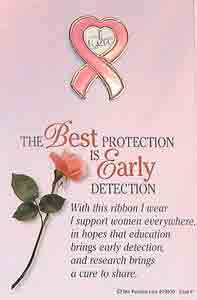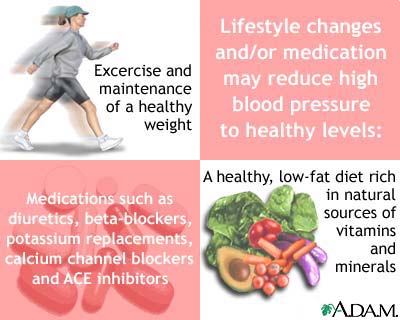|
Cancer and Agingage-well.org > prevent age related diseases> cancer
By Coral Lei About Cancer and Aging - Since I came to the White House, I got two hearing aids, a colon operation, skin cancer, a prostate operation, and I was shot. The damn thing is I've never felt better in my life.” ~Ronald Reagan The Intriguing ConnectionRelationship Between Cancer and Aging?
The relationship between cancer and aging has intrigued scientists for decades. It has long been widely accepted that the single greatest risk factor for developing cancer is aging, e.g., cancer is considered a disease of aging. Aging is not a disease per se, but it is often closely associated with diseases, including cancer. This is because the aging process often inevitably contributes to the decline in performance, gradual inability in the adaptation to the environmental changes, and lower compensatory function. It changes a healthy young adult into an older, potentially less healthy person, with an increased risk of illness, injury, and death. However, new and mounting evidence on animal studies have suggested that perhaps the complex and multifaceted link between cancer and aging should be re-evaluated. One groundbreaking study published in Nature in early 2002 indicated that a critical protein that protects animals from cancer in their early years appeared to cause much of the deterioration associated with aging in later life. It raised the shocking possibility that aging may be a side effect of the natural safeguards that protect us from cancer, suggesting that some of the natural and healthy mechanisms by which the body protects itself from cancer and other diseases in our youth may be implicated in cancer development as we age. Possible Contributing FactorsIt is indisputable that cancer incidence in the human population increases in an almost geometric fashion with age. According to the US National Cancer Institute (NCI), the number of new cancer cases is about 10 times greater for people 65 years and older. In reality, people from any age group can develop cancer. However, elderly, especially people over 40 are more likely to develop cancer. Cancers of the prostate, breast, colon, pancreas, bladder, stomach, lung, and rectum are the most common cancers occurring in people over 65. It is not very clear scientifically why more older people tend to develop cancers than their younger counterparts. There have been some possible factors that might contribute to it.
PreventionSo can anything be done to prevent cancer development? Though it is inevitable that various functions of the body gradually weaken in the process of aging, there are many things that can be done to avoid cancer development. There are many good habits you can develop which will have enormous impact on your overall health as well as preventing not only senior cancer, but a range of other age-related diseases. The secret is to start as early as possible and to practice these lifestyle changes as regularly as possible. Lifestyle Changes You Can MakeA healthy lifestyle plays an important role in preventing cancer development. A healthy lifestyle includes:
Other AspectsMoreover, knowing personal and family medical history, being aware of the working environment, actively seeking treatment for existing chronic diseases, and having regular screens for cancer can all help prevent cancer development or promote early treatment. The one positive thing about cancer and aging is that cancer cells proliferate less quickly in an older patient, so senior cancer tends to progress at a much slower rate than cancer in younger people. ReSourcesWelcome to the mind/body/spirit approach to Breast Surgery featuring honest and informative commentary breast cancer and post-mastectomy breast reconstruction.
SourcesThe following URLs are provided for information purposes only - Please download these addresses into your browser if you would like to visit these sites. Image Sources age-well.org > prevent age related diseases> cancer
TOP of CANCER AND AGING
|
Translate this Site
Search this Site
List of Conditions
|
Alcoholic Liver
|
|
Alzheimers Disease
|
|
Arterioslerosis
|
|
Age-Related Cancer
|
|
Cataracts
|
|
Cholesterol
|
|
Colds and Flu
|
|
Depression
|
|
Diabetes
|
|
Dementia
|
|
Dry Eye
|
|
Enlarged Prostate
|
|
Fibromyalgia
|
|
Glaucoma
|
|
Hair Loss
|
|
Halitosis
|
| Heart Attack
|
| Herniated Disc
|
|
High Blood Pressure
|
|
Incontinence
|
|
Influenza
|
|
Lower Back Pain
|
|
Macular Degeneration
|
|
Menopause
|
|
Osteoarthritis
|
|
Osteoporosis
|
|
Parkinson's Disease
|
|
Peri-Menopause
|
|
Presbycusis
|
|
Presbyopea
|
|
Prediabetes
|
|
Sarcopenia
|
|
Stroke
|
|
Shingles
|
|
Swineflu
|
Develop Smart Habits
|
Lose Extra Weight
|
|
Lose Bellyfat
|
|
Quit Smoking
|
|
Reduce Alcohol
|
|
Get Enough Sleep
|
|
Eat Healthily
|
|
Cut Down on Salt
|
|
Cut down on sugar
|
|
Avoid Transfats
|
|
Follow the DASH Diet
|
|
Drink Plenty of Water
|
|
Exercise Regularly
|
|
Manage Stress
|
|
Get Your 5 a Day
|
| Eat a Healthy Breakfast
|
|
Get Enough Calcium
|
|
Practice Good Oral Hygiene
|
|
Think Positive
|
Healthy Digestion
|
The Digestive System
|
|
The Intestines
|
|
Prevent Constipation
|
About this Site









